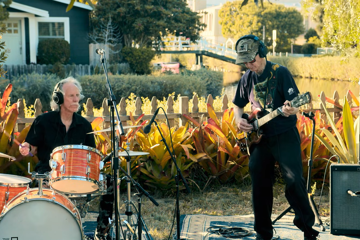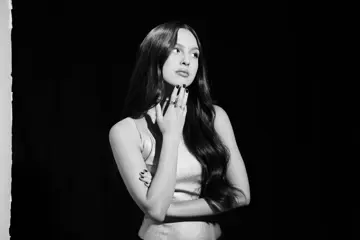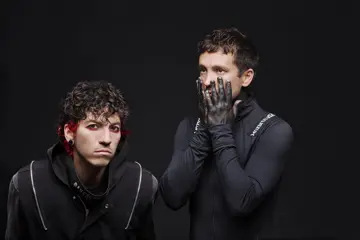US actor Denis O'Hare has shifted effortlessly between stage, television and film. He's won a Tony, worked with some of Hollywood's best directors and enjoyed playing one of television's most nasty characters, the vampire king of Mississippi on HBO's True Blood. Despite his near ubiquity across stage and screen, unless you're a True Blood fan and manage to recognise him without his fangs, he could walk down most streets and likely go unnoticed. However, once you become acquainted with a list of his many credits you realise that his face is more familiar than most. His ability to enshroud himself in the cinematic world has seen him appear in films such as Michael Clayton, Milk, 21 Grams and the recent Dallas Buyers Club as well as a whole range of TV and Broadway productions. He's attained the sought-after categorisation of 'character actor.' The 52-year-old spent most of his early career on the stage where the craft and artistry of his profession was rigorously refined. He describes his passion; “I've got an actor's soul. I'm like an old vaudevillian. It makes me alive. I can't imagine not doing it. I will act till the day I stop breathing.”
Recently, O'Hare has taken a break from appearing in American Horror Story, returning to the stage to bring his one man show An Iliad' to the Perth and Adelaide festivals before taking it to New Zealand. The play is as its title implies: a retelling of Homer's Iliad, the ancient tale of the ten-year siege of Troy by a coalition of Greek armies. The initial impulse for the creation came from O'Hare's friend and director of the show, Lisa Peterson. Way back in 2005, when the US was caught in the middle of multiple conflicts, she was looking for a war play that would compel an audience to reflect upon the current situation. However, Peterson was unable to find a contemporary text that strongly resonated with her. She kept returning to the Iliad. Having worked with O'Hare in the past, she asked him to assist in the development of the script. In the years that followed, whenever they could find time between their numerous commitments, O'Hare and Peterson clambered down together to write their adaptation using Robert Fagle's lyrical 1991 translation as a source.
The original story of the Iliad was told orally, passed down through generations of Greek storytellers, each of whom would tell their own version on the story. Scholars guess that at around 700BC Homer wrote down the version of the story that carries on as the one we read today. O'Hare's production connects with that history; that's why they've called their version 'An' Iliad. He explains that the play is just as much about the process of storytelling as it is about war. “When people see it, they're always blown away by the fact that they're in a room with a storyteller. It's that thing that only live storytelling can do. We didn't even realise until we started doing it, that it isn't about war. It's about the nature of telling stories to each other.”
Although An Iliad details the horrors of war and gestures towards contemporary conflicts, O'Hare feels that it is reductive to simply stamp the production as an anti-war piece. O'Hare, himself a vocal pacifist, points out that the Iliad is somewhat more all-encompassing. “The piece itself is too big to carry one message. And so out of respect for Homer and the piece we ask a lot of questions, we raise things passionately, we don't try to push the evening in one direction or another. I think the piece will definitely fall on the side that questions the use of war, but there are plenty of moments in the play that glorify violence. Being violent is human and so one of the questions we're also wrestling with is, 'Why are we violent?'
Don't miss a beat with our FREE daily newsletter
Even beyond its thematic size An Iliad is a big task for an actor. The 100 minutes of text that O'Hare performs each night takes a physical toll. “It's tough on my voice, but you have to really be careful about marshalling resources and protecting yourself. I have to become, unfortunately, monk like. I don't really spend time with people. I have to just kind of spend time with myself.” Although O'Hare would proabably consider these small sacrifices for the job he loves.















